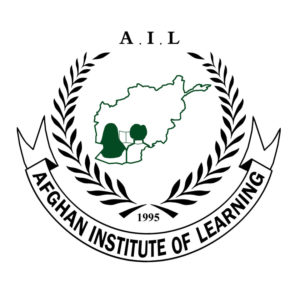 The Afghan Institute of Learning (AIL) aims to create a brighter future for Afghanistan through a focus on education. In 1995, Dr. Sakena Yacoobi founded AIL to address what she perceived as a systemic problem. She observed that Afghans in need were not able to access basic education and health services and were subsequently less able to support themselves, a situation that impacted Afghan society as a whole. Furthermore, Dr. Yacoobi believed that the only way to address this problem was to adopt a holistic approach. As a result, AIL is built firmly on grassroots principles, and its work is guided by the belief that major societal change occurs at the community level by transforming lives. To date, more than 14 million Afghans have benefitted from AIL’s offerings. Here’s what you need to know about this visionary organization:
The Afghan Institute of Learning (AIL) aims to create a brighter future for Afghanistan through a focus on education. In 1995, Dr. Sakena Yacoobi founded AIL to address what she perceived as a systemic problem. She observed that Afghans in need were not able to access basic education and health services and were subsequently less able to support themselves, a situation that impacted Afghan society as a whole. Furthermore, Dr. Yacoobi believed that the only way to address this problem was to adopt a holistic approach. As a result, AIL is built firmly on grassroots principles, and its work is guided by the belief that major societal change occurs at the community level by transforming lives. To date, more than 14 million Afghans have benefitted from AIL’s offerings. Here’s what you need to know about this visionary organization:
1. It offers a wide range of programs and services.
When AIL was founded, it focused primarily on basic education and health initiatives. However, AIL’s scope of offerings has grown considerably over the years, and the organization now provides a wide variety of programs and services across a number of different areas. Following are some examples of AIL’s projects:
Learning Centers—AIL’s unique Learning Center model is the cornerstone of its educational endeavors. Learning Centers are schools or other educational facilities that typically serve Afghanistan’s rural communities or urban neighborhoods that are underserved. They offer a wide range of classes and educational opportunities, ranging from university-level classes and literacy courses to workshops focused on crafts such as calligraphy and carpet-weaving. A community demand-driven project, Learning Centers are established specifically at the request of individual communities. Communities that want a Learning Center collaborate closely with AIL to plan, fund, and operate them. The ultimate goal is that each Learning Center will eventually become self-sufficient. Since 1996, AIL has opened or supported over 340 Learning Centers.
Teacher training—One of the challenges that has hampered the progress of Afghanistan’s educational system has been a lack of qualified, trained teachers. AIL works to fill this gap through intensive, small-group teacher training workshops. Subjects covered include the pedagogical basics of teaching, the creation of a good classroom environment, the development of curricula and lesson materials, and testing and evaluation.
Cultural programs—Preserving Afghanistan’s cultural heritage and reviving its cultural sector are important priorities for many organizations, including AIL. Since 2011, AIL has been working with local government officials in Herat to develop and implement a series of cultural projects and programs. They include the establishment of a library and research center at the Gawhar Shad Musalla Complex, a historic mausoleum, and a workshop series on traditional Afghan arts and crafts where master craftsmen teach skills such as miniature painting and tile-making at the recently restored Herat Citadel.
Legal services—In 2015, AIL established a Legal Clinic Project in Herat to provide indigent Afghans with legal support. Located near Herat’s courts and staffed by five experienced lawyers, the Legal Clinic Project helps people with legal difficulties who lack sufficient financial resources to access legal representation. Its mission is guided by five core values.

2. Its mission is guided by five core values.
AIL founder Dr. Sakena Yacoobi firmly believes that the people her organization serves are the ones who know best what their own needs are, and that trust is the key to building relationships that lead to sustainable change. Consequently, she has placed these five core values at the heart of AIL’s work and mission:
Listening—According to Dr. Yacoobi, the most important thing that an organization can do to serve people in need is to listen. Only by listening is it possible to learn what is needed to improve a particular situation.
Community support—The full support of each community member is essential in developing programs that lead to lasting change. True transformation occurs when communities are part of the solution rather than simply recipients of charity.
Leadership—AIL is all about helping each person to achieve their goals by providing them with the tools and resources they need for success. In doing so, AIL demonstrates what it means to be a leader.
Evaluation and reflection—Assessing what has worked and what has not for new programs and initiatives is a vital component of AIL’s work. Building on successes and learning from losses helps communities to move closer toward their goals.
Innovation—While successful projects bring joy and fulfillment, AIL believes that innovation never ends. There is always something new to try or a new idea that provides inspiration.
3. Its founder has received widespread recognition.
AIL’s founder, Dr. Sakena Yacoobi, has received widespread international recognition. Through her tireless work with AIL, Dr. Yacoobi has earned recognition from leading institutions around the world. Among her many honors are the Opus Prize, the WISE Prize for Education, the Harold W. McGraw Prize in Education, and the Sunhak Peace Prize. In addition, she has received six honorary doctorates from various institutions.
